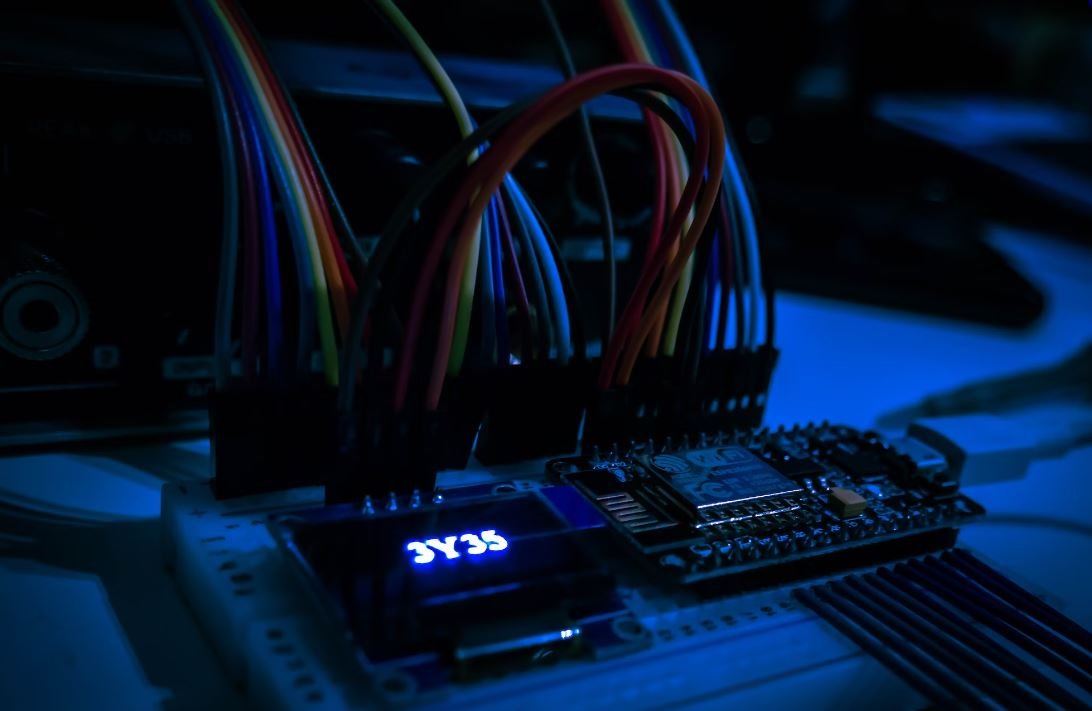AI Applications Across Industries
The field of artificial intelligence (AI) has witnessed significant advancements in recent years, empowering industries across the globe. From healthcare and finance to manufacturing and retail, AI has revolutionized many industries by automating tasks, improving efficiency, and enabling innovative solutions. In this article, we explore key applications of AI in various sectors and highlight the transformative impact it has had.
Key Takeaways
- AI applications are transforming industries globally.
- Automation and efficiency improvements are major benefits of AI.
- AI enables innovative solutions and decision-making support.
AI in Healthcare
**Artificial intelligence** has found extensive applications in the healthcare industry. Machine learning algorithms can analyze large amounts of medical data to improve **diagnosis accuracy** and **treatment recommendations**. Robots and AI-powered surgical systems enhance **surgical precision** and shortens recovery times. Additionally, AI helps in **drug discovery**, **patient monitoring**, and **data security**.
*AI is revolutionizing the healthcare industry by providing accurate diagnosis and treatment recommendations with the potential to save more lives.*
AI in Finance
In the finance sector, AI is transforming processes such as **fraud detection** and **risk assessment**. Machine learning algorithms analyze vast amounts of financial data to detect suspicious patterns and transactions. AI-powered chatbots provide **customer support** and **personalized recommendations**, while automated trading systems use AI to predict market trends and make informed investment decisions.
*AI’s ability to detect fraud and assess risks efficiently has made it indispensable in the financial industry.*
AI in Manufacturing
**Robotics** and **automation** are at the core of AI applications in the manufacturing industry. AI-powered robots perform complex tasks with precision and speed, reducing errors and improving overall production efficiency. Machine learning algorithms optimize **supply chain management** by predicting demand, managing inventory, and minimizing disruptions. Moreover, AI enhances **quality control** and enables predictive maintenance, reducing downtime and maximizing productivity.
*AI’s integration with robotics and automation revolutionizes manufacturing processes and streamlines production across the industry.*
AI in Retail
The retail industry benefits from AI in various ways. AI-powered chatbots and virtual assistants offer personalized customer support, answer queries, and make product recommendations based on customer preferences. Recommender systems use machine learning to analyze customer data and offer **personalized shopping experiences**. AI’s image recognition capabilities enable **visual search** and virtual try-on, enhancing the online shopping experience.
*AI transforms the retail landscape by providing personalized customer experiences and simplifying the online shopping journey.*
AI in Transportation
AI has significant implications for the transportation industry. Autonomous vehicles integrate AI technologies such as **computer vision** and **machine learning** to enhance **driver safety**, optimize routes, and improve fuel efficiency. AI-powered systems monitor and predict traffic patterns, reducing congestion and enabling better **traffic management**. Additionally, AI applications aid in **cargo and fleet optimization**, leading to more efficient logistics.
*AI’s impact on the transportation industry goes beyond autonomous vehicles, improving safety, efficiency, and logistics at large.*
AI in Education
In the education sector, AI offers personalized learning experiences and improves student outcomes. Adaptive learning platforms use AI algorithms to analyze students’ performance and provide customized content and recommendations. Intelligent tutoring systems assist students in problem-solving and offer real-time feedback. AI also plays a role in automating administrative tasks, freeing up time for educators.
*AI transforms education by tailoring learning experiences to individual students and automating administrative processes for teachers and administrators.*
Interesting Insights
| Industry | AI Application | |
|---|---|---|
| Finance | Machines Learning | Detecting fraud and analyzing risks |
| Natural Language Processing | Chatbots for customer support and personalized recommendations | |
| Healthcare | Machine Learning | Improving diagnosis accuracy and treatment recommendations |
| Robotics | Enhancing surgical precision and reducing recovery times | |
AI has transformed industries globally, with applications ranging from healthcare and finance to manufacturing and retail. Machine learning algorithms improve **diagnosis accuracy** and enhance **surgical precision**, while AI-powered systems enable **fraud detection** and **personalized customer support**. These advancements streamline processes, automate tasks, and ultimately lead to more efficient and innovative solutions.
The Future of AI
The potential of AI is limitless, and its applications continue to expand rapidly across industries. As technology evolves, AI will play an even more prominent role in decision-making, advanced automation, and data analysis. Embracing these advancements will be crucial for businesses to stay competitive in an increasingly AI-driven world.
*As AI continues to advance, it holds the key to unlocking unprecedented opportunities for businesses and driving innovation at an unprecedented scale.*

Common Misconceptions
Misconception 1: AI will replace human workers
One of the most common misconceptions about AI is that it will completely replace human workers in various industries. While AI has the potential to automate certain tasks and streamline processes, it is unlikely to completely replace human employees in most roles.
- AI can assist humans in completing tasks more efficiently.
- AI works best when combined with human intelligence and creativity.
- AI can create new job opportunities in fields like data science and programming.
Misconception 2: AI is only used by large corporations
Another misconception is that AI applications are limited to large corporations with extensive resources. However, AI is increasingly being adopted by businesses of all sizes, including startups and small enterprises.
- AI technology is becoming more affordable and accessible to smaller businesses.
- AI can help small businesses improve customer service and decision-making.
- AI tools like chatbots can automate customer support interactions for businesses of any size.
Misconception 3: AI is only useful for tech-related industries
Many people believe that AI is only relevant in tech-related industries. However, AI has the potential to transform virtually every industry, from healthcare and finance to manufacturing and agriculture.
- AI can improve patient diagnostics and treatment in healthcare.
- AI can help automate financial analysis and fraud detection in the finance sector.
- AI can optimize production processes and supply chain management in manufacturing.
Misconception 4: AI is autonomous and has human-like intelligence
Another misconception is that AI systems are fully autonomous and possess human-like intelligence. In reality, AI is designed to perform specific tasks and relies on human programmers and data to operate effectively.
- AI systems are only as intelligent as the algorithms and datasets they are trained on.
- AI requires continuous human supervision and monitoring to ensure accuracy and ethical use.
- AI cannot replicate human emotions and intuition.
Misconception 5: AI is infallible and unbiased
There is a common misconception that AI is infallible and completely unbiased. However, AI systems can inherit and amplify human biases present in the data and algorithms used to train them.
- AI systems need to be carefully designed and tested to minimize biases.
- Human oversight is essential to identify and correct biases in AI systems.
- Ethical considerations are crucial when developing and using AI applications to prevent discriminatory outcomes.

AI Applications in Healthcare
In the healthcare industry, artificial intelligence (AI) is revolutionizing various aspects of patient care and research. The table below highlights some of the key applications of AI in healthcare.
| Application | Description |
|---|---|
| Disease Diagnosis | AI algorithms can analyze medical images and clinical data to aid in accurate and timely diagnosis. |
| Patient Monitoring | AI-powered devices can continuously monitor patients to detect anomalies and predict potential health issues. |
| Drug Discovery | AI helps in identifying potential drug candidates and accelerates the discovery process by analyzing enormous datasets. |
| Virtual Nurses | AI chatbots provide personalized recommendations, answer patient questions, and offer basic medical advice. |
AI Applications in Finance
In the finance industry, AI is reshaping how financial institutions operate and interact with customers. The following table showcases some notable applications of AI in finance.
| Application | Description |
|---|---|
| Risk Assessment | AI algorithms assess financial risks and potential fraud by analyzing large volumes of transactional data. |
| Automated Trading | AI-powered trading systems use complex algorithms to make autonomous and data-driven investment decisions. |
| Chatbot Customer Support | AI chatbots assist customers in managing accounts, answering inquiries, and providing financial advice. |
| Credit Scoring | AI models analyze creditworthiness based on various factors, enabling faster and more accurate credit decisions. |
AI Applications in Retail
The retail industry has adopted AI technologies to enhance customer experiences, streamline operations, and optimize sales strategies. Explore the table below for notable AI applications in retail.
| Application | Description |
|---|---|
| Personalized Recommendations | AI algorithms analyze customer data to provide personalized product recommendations, leading to increased sales. |
| Inventory Management | AI systems forecast demand, manage inventory levels, and optimize supply chain operations for improved efficiency. |
| Fraud Detection | AI detects and prevents fraudulent activities, such as card fraud or identity theft, protecting both the retailer and customers. |
| Virtual Shopping Assistants | AI-powered chatbots or virtual assistants help customers with product inquiries and browsing suggestions. |
AI Applications in Transportation
The transportation industry leverages AI to enhance safety, optimize routes, and improve overall efficiency. Take a look at the table below to learn about AI applications in transportation.
| Application | Description |
|---|---|
| Autonomous Vehicles | AI enables self-driving cars and trucks, reducing accidents, improving traffic flow, and enhancing fuel efficiency. |
| Traffic Prediction | AI algorithms analyze historical and real-time data to predict traffic patterns and optimize route planning. |
| Smart Logistics | AI systems optimize delivery routes, shipping schedules, and fleet management, increasing operational efficiency. |
| Public Transportation Optimization | AI algorithms assess passenger demand and optimize public transportation schedules to minimize delays and overcrowding. |
AI Applications in Agriculture
AI is transforming the agriculture sector by enabling precise crop monitoring, crop yield prediction, and more efficient resource allocation. The table below showcases AI applications in agriculture.
| Application | Description |
|---|---|
| Precision Farming | AI-powered sensors collect data on soil conditions, crop health, and weather patterns to optimize farming practices. |
| Pest Detection | AI algorithms identify pests and diseases, allowing farmers to take targeted actions to protect their crops. |
| Automated Harvesting | AI-enabled machines automate the harvesting process, improving efficiency and reducing labor costs. |
| Water Management | AI systems monitor soil moisture levels and irrigation needs, helping farmers conserve water and minimize waste. |
AI Applications in Manufacturing
The manufacturing industry embraces AI technologies for enhancing productivity, quality control, and predictive maintenance. Refer to the table below for key AI applications in manufacturing.
| Application | Description |
|---|---|
| Predictive Maintenance | AI analyzes equipment data to predict maintenance needs, reducing downtime and optimizing operational efficiency. |
| Quality Control | AI-powered vision systems inspect products for defects, ensuring high-quality manufacturing processes and reducing waste. |
| Supply Chain Optimization | AI systems anticipate demand fluctuations, optimize inventory levels, and streamline logistics in the manufacturing process. |
| Human-Robot Collaboration | AI enables robots to work alongside humans, automating repetitive tasks while enhancing worker safety and output. |
AI Applications in Education
The education sector benefits from AI’s ability to enhance personalized learning experiences, automate administrative tasks, and provide intelligent tutoring systems. Discover the table below for notable AI applications in education.
| Application | Description |
|---|---|
| Personalized Learning | AI-powered platforms offer tailored learning paths based on individual student needs and capabilities. |
| Automated Grading | AI systems automate grading processes by assessing assignments and exams, providing faster feedback to students. |
| Intelligent Tutoring | AI tutors provide personalized guidance, adapt instruction based on learning progress, and offer real-time feedback. |
| Educational Content Creation | AI generates educational content and resources, aiding teachers in developing engaging and relevant materials. |
AI Applications in Entertainment
AI plays a significant role in the entertainment industry, contributing to enhanced content creation, personalized recommendations, and immersive experiences. Check the table below for notable AI applications in the entertainment sector.
| Application | Description |
|---|---|
| Recommendation Systems | AI algorithms analyze user preferences to recommend movies, music, and other forms of entertainment tailored to individual tastes. |
| Content Generation | AI assists in generating music, artwork, and scripts, providing novel and creative content for various entertainment platforms. |
| Virtual Reality (VR) | AI enhances VR experiences by creating realistic virtual environments and improving interactive capabilities. |
| Sentiment Analysis | AI analyzes social media data and user feedback to gauge audience sentiment and guide content decisions. |
AI Applications in Energy
The energy sector embraces AI for optimizing energy distribution, reducing costs, and improving renewable energy management. Take a look at the table below for notable AI applications in the energy industry.
| Application | Description |
|---|---|
| Smart Grid Management | AI enables intelligent energy distribution, load balancing, and predictive maintenance within smart grid systems. |
| Renewable Energy Forecasting | AI algorithms analyze weather patterns, historical data, and demand to optimize renewable energy generation and storage. |
| Energy Consumption Optimization | AI systems monitor energy usage patterns, detect inefficiencies, and provide recommendations for energy conservation. |
| Fault Detection and Prevention | AI algorithms identify equipment malfunctions, enabling proactive maintenance and preventing costly breakdowns. |
From healthcare to entertainment, AI is permeating across industries, revolutionizing the way we work, live, and interact. These tables merely scratch the surface, showcasing some of the extraordinary applications of AI in various sectors. As technology continues to advance, AI is anticipated to play an increasingly transformative role, unlocking new opportunities and further improving efficiency and innovation.
AI Applications Across Industries
Frequently Asked Questions
What is AI?
How is AI used in the healthcare industry?
What are some applications of AI in the manufacturing sector?
How does AI impact the finance industry?
What are some AI applications in the transportation sector?
How is AI revolutionizing customer service?
What are the benefits of AI in agriculture?
How is AI being utilized in the retail industry?
What role does AI play in the education sector?
How can AI contribute to the energy industry?





